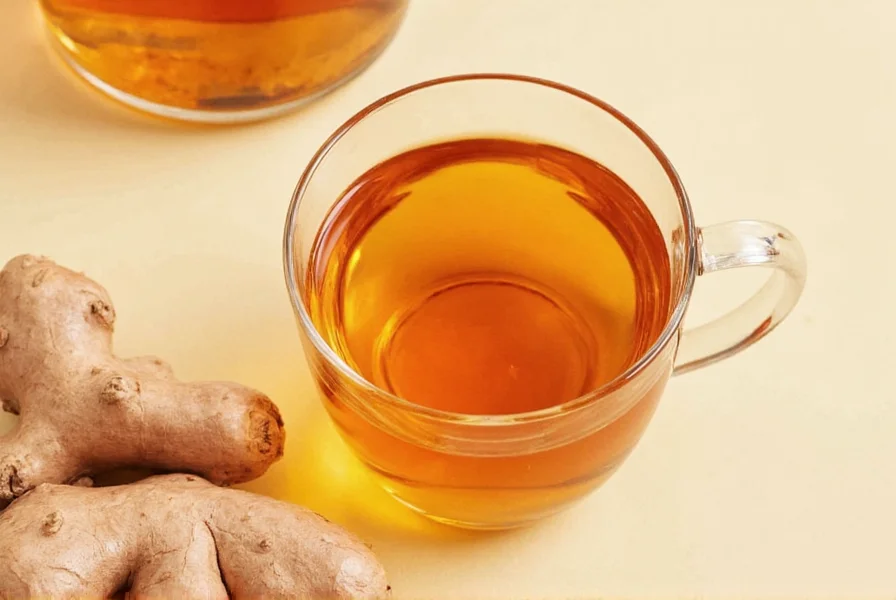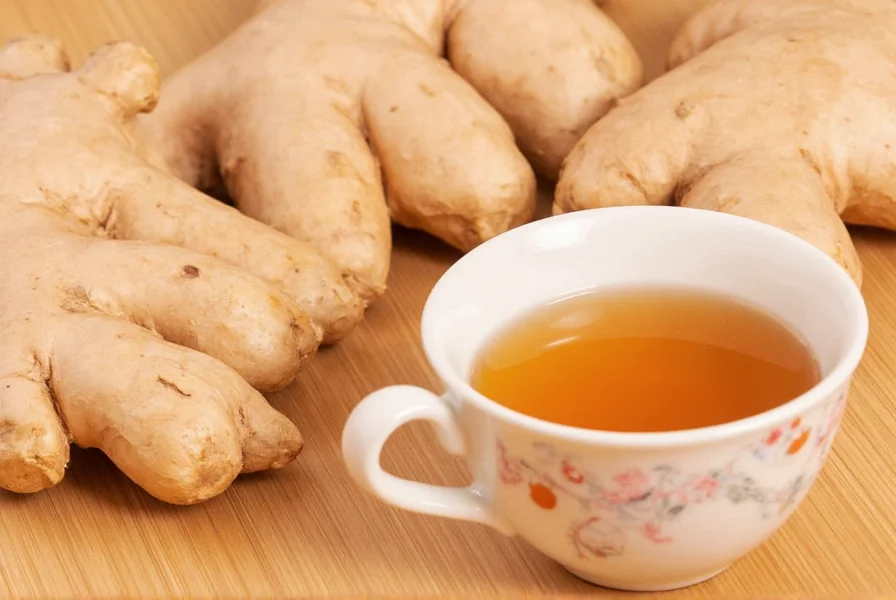For centuries, ginger root has been used in traditional medicine systems worldwide to address digestive discomfort. When diarrhea strikes, many people turn to ginger root tea as a natural remedy to soothe their upset stomach. This article examines what science says about ginger's effectiveness for diarrhea relief, how to properly prepare ginger tea for digestive issues, and important safety considerations you should know before trying this home remedy.
The Science Behind Ginger and Digestive Health
Ginger (Zingiber officinale) contains bioactive compounds like gingerols and shogaols that demonstrate significant anti-inflammatory and antimicrobial effects. According to research published in the Journal of Gastroenterology and Hepatology, these compounds may help regulate intestinal motility and reduce inflammation in the gastrointestinal tract—key factors in managing diarrhea symptoms.
A 2020 systematic review in Complementary Therapies in Medicine analyzed multiple studies on ginger's effects on digestive disorders. The review concluded that ginger shows promise in reducing nausea and vomiting associated with various conditions, though more targeted research on acute infectious diarrhea is needed. The anti-spasmodic properties of ginger may help calm intestinal contractions that contribute to frequent bowel movements.
How Ginger Root Tea May Help with Diarrhea Symptoms
When experiencing diarrhea, ginger root tea offers several potential benefits:
- Nausea reduction - Particularly helpful when diarrhea accompanies stomach flu or food poisoning
- Anti-inflammatory action - May reduce intestinal inflammation causing loose stools
- Antimicrobial properties - Some studies suggest ginger can inhibit certain bacteria that cause infectious diarrhea
- Digestive regulation - May help normalize gut motility
It's important to understand that ginger tea works as a supportive measure rather than a direct treatment for the underlying cause of diarrhea. For viral or bacterial infections, the body needs time to fight the illness, and ginger tea may simply make the experience more comfortable while recovery occurs.
Preparing Effective Ginger Root Tea for Diarrhea Relief
Not all ginger teas provide the same potential benefits. For maximum effectiveness when addressing diarrhea, follow these preparation guidelines:
| Preparation Method | Recommended for Diarrhea | Why It Matters |
|---|---|---|
| Fresh ginger root (1-2 inches) | ✓ Best option | Contains highest concentration of active compounds |
| Dried ginger powder | ✓ Acceptable alternative | Less potent but still effective; use 1/2 teaspoon |
| Pre-packaged ginger tea bags | △ Variable results | Check ingredients; many contain minimal actual ginger |
| Ginger ale or carbonated drinks | ✗ Not recommended | High sugar content may worsen diarrhea symptoms |
Step-by-Step Ginger Tea Preparation
- Peel and thinly slice 1-2 inches of fresh ginger root
- Boil 2 cups of water and add ginger slices
- Simmer covered for 10-15 minutes (longer for stronger tea)
- Strain and allow to cool to warm temperature
- Optional: Add small amount of honey (not for children under 1 year)
- Drink 1/4 to 1/2 cup every 2-3 hours as needed
For diarrhea relief, avoid adding lemon or other citrus which might irritate sensitive digestive systems. The optimal temperature is warm but not hot, as extreme temperatures can further irritate the gastrointestinal tract.

Safety Considerations and When to Avoid Ginger Tea
While generally safe for most adults, ginger root tea isn't appropriate for everyone experiencing diarrhea. Consider these important safety factors:
Who Should Avoid Ginger Tea for Diarrhea
- Children under 2 years old (consult pediatrician first)
- Individuals taking blood thinners like warfarin
- People with gallstone disease
- Those with known ginger allergy
- Pregnant women beyond first trimester (consult doctor)
Ginger may interact with certain medications including diabetes drugs, blood pressure medications, and anticoagulants. If you take prescription medications regularly, consult your healthcare provider before using ginger tea as a remedy for diarrhea.
When Ginger Tea Isn't Enough: Recognizing Serious Symptoms
Natural remedies like ginger root tea work best for mild, acute diarrhea cases. Certain symptoms indicate you should seek medical attention immediately rather than relying on home treatments:
- Diarrhea lasting more than 48 hours in adults (24 hours in children)
- Blood or black stools
- High fever (above 102°F or 39°C)
- Signs of dehydration (dizziness, reduced urination, extreme thirst)
- Severe abdominal or rectal pain
Chronic diarrhea (lasting more than two weeks) requires medical evaluation to determine underlying causes such as inflammatory bowel disease, celiac disease, or chronic infections. Ginger tea alone cannot address these conditions.
Complementary Approaches for Diarrhea Management
For best results, combine ginger root tea with other evidence-based approaches:
- Hydration - Drink oral rehydration solutions or clear broths to replace lost fluids and electrolytes
- BRAT diet - Bananas, rice, applesauce, and toast can help firm stools (temporarily)
- Probiotics - Yogurt with live cultures or probiotic supplements may restore gut flora
- Rest - Allow your digestive system to recover
Avoid dairy products, fatty foods, spicy dishes, and artificial sweeteners until symptoms improve. These can worsen diarrhea in many people.
Understanding Ginger's Role in Diarrhea Treatment
Ginger root tea serves as a complementary approach rather than a primary treatment for diarrhea. Its effectiveness varies based on the cause of diarrhea—ginger may help most with nausea-related diarrhea from stomach viruses but offers limited benefit for antibiotic-associated diarrhea or inflammatory bowel conditions.
Research suggests ginger works best when used at the first sign of symptoms. Delaying treatment until diarrhea becomes severe reduces its potential benefits. Remember that while natural remedies like ginger tea can provide comfort, they don't replace medical care when needed.











 浙公网安备
33010002000092号
浙公网安备
33010002000092号 浙B2-20120091-4
浙B2-20120091-4